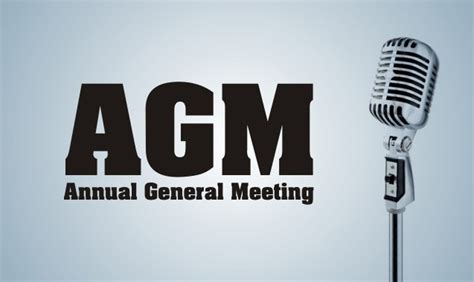WHY COVID-19 is not an excuse to delay an AGM

By Auren Freitas dos Santos, Director of The Advisory
It is no surprise that the Covid-19 pandemic has changed the way we do everything. One practical aspect which has been affected, in the context of sectional title schemes, is the ability to hold annual general meetings.
Based on my interactions with trustees and owners, it appears that the majority of bodies corporate have simply decided to abandon their annual general meetings until the glorious day comes that they can meet again in person.
While the pandemic has been life-changing, it shouldn’t prevent life from continuing, albeit in a different way to what we are used to. The so-called “new normal” is here to stay and bodies corporate need to find new ways to continue functioning effectively.
Fortunately, the prescribed management rules (PMRs) prescribe various ways for bodies corporate to deal with the important business that must be transacted at each annual general meeting while the pandemic rages on.
These are some of the “new normal” ways in which bodies corporate can deal with their annual general meetings:
- The most obvious option is to conduct the AGM entirely remotely. This can be done via Zoom, Skype, WhatsApp or even Facebook, provided that this remote method of attendance:
a. is accessible to all members entitled to attend the meeting,
b. permits all persons participating in the meeting to effectively communicate with each other in real-time during the meeting; and
c. permits the chairperson to confirm, with reasonable certainty, the identity of the participants at the meeting. - A less obvious option, which isn’t always practical for some bodies corporate, is avoiding the need to hold an annual general meeting altogether. A body corporate is not required to hold an AGM, provided that either before or within one month of the end of a financial year, all members in writing waive the right to the meeting and consent in writing to motions that deal with all the items of business that must be transacted at the AGM;
- If neither of the above-mentioned options are reasonably attainable in your scheme, you could consider adopting a hybrid approach by allowing a limited number of owners to attend the AGM in person (provided that you can comply with all social distancing rules and protocols) and the rest of the owners who have access to the internet can participate in the AGM remotely.
Understandably, it may take a bit longer than expected for schemes to put the necessary measures in place to adapt to the new normal. To ensure that your scheme can meet its financial obligations and continue functioning effectively, while you arrange the AGM, you should consider whether you need to follow the procedure set out in PMR 21(3)(b), which allows the trustees to increase the levy contributions due by members by no more than 10% at the end of the financial year. This increase will remain effective until the members can approve the new budgets at the AGM, provided it is warranted by the anticipated increase of the body corporate’s liabilities and is authorised by a trustee resolution taken in writing.
The last 12 months have shown us that we need to be flexible and innovative to adapt to the new normal, and bodies corporate need to find creative ways to ensure that they don’t get left behind. There is simply no excuse for failing to plan for an appropriate AGM.


Sorry, the comment form is closed at this time.